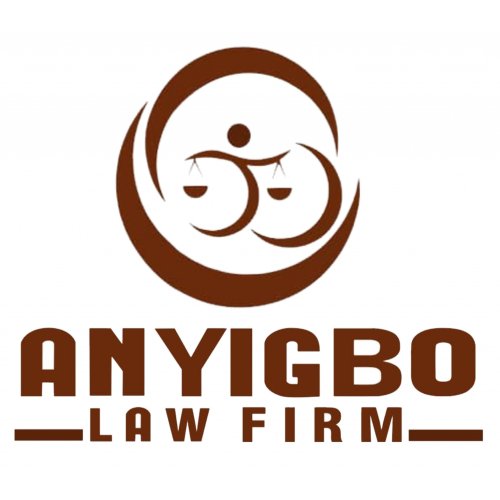Best Landlord & Tenant Lawyers in Onitsha
Share your needs with us, get contacted by law firms.
Free. Takes 2 min.
Free Guide to Hiring a Real Estate Lawyer
List of the best lawyers in Onitsha, Nigeria
Nigeria Landlord & Tenant Legal Questions answered by Lawyers
Browse our 27 legal questions about Landlord & Tenant in Nigeria and read the lawyer answers, or ask your own questions for free.
- About rent increament
- I was given 2 months and 28 days notice of increament of rent , I refused to pay and I was given 7days quit notice , my rent was increased by 50%
-
Lawyer answer by CO-dunni Law Solicitors
Although this increase is unconscionable, the 7days notice is valid if your rent has expired. Unless you have an alternative arrangement for accommodation. I suggest you find go and negotiate with your Landlord.
Read full answer - My house rent is expiring on march 28 next year and my landlord gave me quick notice to vacate the property on march 28 . My question is by Imo state Nigeria law is he not supposed to give me time to vacate to vacate after my rent is due
- My house rent is expiring on march 28 next year and my landlord gave me quick notice to vacate the property on march 28 . My question is by Imo state Nigeria law is he not supposed to give me time to vacate to vacate after my rent is due
-
Lawyer answer by CO-dunni Law Solicitors
There are several gaps to your question, first you did not mention the date on the Notice, another you did not mention the type of tenancy, whether it is a yearly Tenancy or a bi-annual Tenancy. The Notice to Quit...
Read full answer - I moved into a self-contained apartment in October 2024, and I paid one year's rent. My landlord issued a notice to quit to me on 23rd July 2025. What does the law say about the 3-month notice?
- I want to know if I should insist on a six-month notice or if I should leave on or before 23rd October.I moved into a self-contained apartment in October 2024, and I paid one year's rent. My landlord issued a notice to quit to me on 23rd July 2025. What... Read more →
-
Lawyer answer by Remedium Reel Attorneys
What would generally determine whether the 3 months notice is if there's a written agreement between you and the landlord. (1) If the agreement spells out that you're entitled to 3 months notice, it's valid. (2) If the agreement is...
Read full answer
About Landlord & Tenant Law in Onitsha, Nigeria
The laws governing landlord and tenant relationships in Onitsha, Nigeria, are designed to regulate the rights and obligations of both parties. These laws aim to ensure fair and equitable treatment for both landlords and tenants while promoting harmonious living arrangements. Understanding the legal framework is essential for both landlords and tenants to protect their rights and avoid potential disputes.
Why You May Need a Lawyer
There are several situations where seeking legal assistance from a lawyer specializing in Landlord & Tenant law could be beneficial. Some common scenarios include:
- Disputes over lease agreements, rent, or security deposits
- Eviction or unlawful detainer actions
- Damage to property or negligence claims
- Breach of contract allegations
- Non-compliance with local housing standards
- Illegal lockouts or utility shut-offs
Local Laws Overview
In Onitsha, the Landlord & Tenant law is primarily governed by the Tenancy Law of Anambra State. Under this law, both landlords and tenants have certain rights and responsibilities. Some key aspects include:
- Written agreement: It is advisable to have a written tenancy agreement outlining the terms and conditions of the lease.
- Rent payment: The law defines the permissible rent amounts, rent increase limits, and the timeframe for rent payment.
- Security deposit: There are regulations regarding the collection and refund of security deposits upon the termination of a lease.
- Repairs and maintenance: Both landlords and tenants have obligations related to property maintenance and repairs.
- Eviction procedures: The law sets out the proper legal process for eviction and the circumstances under which it is permissible.
Frequently Asked Questions
1. Can a landlord increase the rent arbitrarily?
No, landlords cannot increase the rent arbitrarily. The Tenancy Law of Anambra State sets limits on rent increases and requires proper notice to the tenant.
2. What can I do if my landlord fails to make necessary repairs?
If your landlord fails to make necessary repairs, you can give written notice specifying the repairs needed. If the landlord still fails to address the issue, you may be entitled to deduct the cost of repairs from your rent or seek legal remedies.
3. Can a landlord evict a tenant without a court order?
No, landlords cannot evict tenants without a court order. The law outlines the proper legal process for eviction, which involves obtaining a court order.
4. What are the rules regarding security deposits?
Landlords are allowed to collect security deposits, but they must refund them within a specific period after the termination of the lease. Any deductions from the deposit must be reasonable and must be communicated to the tenant.
5. What are the tenant's rights if utilities are disconnected by the landlord?
A landlord cannot unlawfully disconnect a tenant's utilities. If this occurs, tenants have the right to seek legal remedies, such as temporary accommodation and compensation for any related damages.
Additional Resources
For further information and assistance related to Landlord & Tenant law in Onitsha, Nigeria, you may find the following resources helpful:
- Lawyers' Association of Nigeria (Onitsha Branch): Contact the local lawyers' association for referrals to reputable Landlord & Tenant lawyers in the area.
- Anambra State Government: Visit the official website of the Anambra State Government for access to relevant laws and regulations.
- Legal Aid Council of Nigeria: The Legal Aid Council provides free or subsidized legal services to individuals who cannot afford legal representation.
Next Steps
If you require legal assistance or have further questions regarding Landlord & Tenant matters in Onitsha, Nigeria, it is recommended to consult with a qualified lawyer specializing in this area. They can provide personalized advice based on your specific circumstances and help ensure your rights are protected.
Lawzana helps you find the best lawyers and law firms in Onitsha through a curated and pre-screened list of qualified legal professionals. Our platform offers rankings and detailed profiles of attorneys and law firms, allowing you to compare based on practice areas, including Landlord & Tenant, experience, and client feedback.
Each profile includes a description of the firm's areas of practice, client reviews, team members and partners, year of establishment, spoken languages, office locations, contact information, social media presence, and any published articles or resources. Most firms on our platform speak English and are experienced in both local and international legal matters.
Get a quote from top-rated law firms in Onitsha, Nigeria — quickly, securely, and without unnecessary hassle.
Disclaimer:
The information provided on this page is for general informational purposes only and does not constitute legal advice. While we strive to ensure the accuracy and relevance of the content, legal information may change over time, and interpretations of the law can vary. You should always consult with a qualified legal professional for advice specific to your situation.
We disclaim all liability for actions taken or not taken based on the content of this page. If you believe any information is incorrect or outdated, please contact us, and we will review and update it where appropriate.












